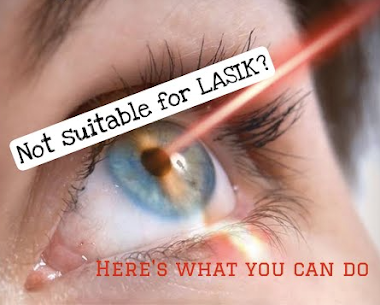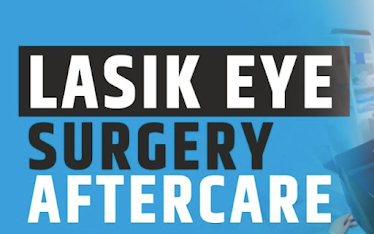What Age is Ideal for LASIK Surgery?
Vision correction has been transformed by LASIK surgery, which offers a dependable option for individuals to people who want to avoid using glasses or contact lenses. However, choosing the appropriate age for LASIK surgery is essential to guarantee the best results and long-term visual stability. This article will discuss the best age for LASIK surgery and the elements to consider. By comprehending the factors and timing involved, people may decide about this life-changing treatment in an educated manner.
What is lasik?
The surgical method known as lASIK (Laser-Assisted in Situ Keratomileusis) treats common visual issues such as astigmatism, hyperopia, and myopia. It is a commonly used and well-liked sort of refractive surgery that tries to lessen or do away with the requirement for eyeglasses or contact lenses.
The ophthalmologist uses a specialized laser to reshape the eye's transparent front surface of the cornea during LASIK surgery. The operation normally occurs in an outpatient environment and only needs a short time per eye.
LASIK Procedure
To numb the eye and assure comfort throughout the procedure, anesthetic eye drops are used.
A thin, protective flap is made on the cornea using a microkeratome or femtosecond laser. The underlying corneal tissue is then exposed by gradually lifting and folding the flap.
To accurately remove a certain amount of corneal tissue, a computer-controlled ultraviolet laser called the excimer laser is employed. By eliminating small layers of tissue, the laser reshapes the cornea, adhering to a personalized treatment plan depending on the patient's prescription.
After the cornea has been adjusted to the correct curvature, the surgeon places the corneal flap back where it adheres without using sutures. The corneal flap is a natural bandage to speed healing and restore vision.
If necessary, the process is done on the second eye.
After LASIK surgery, most patients see an improvement in vision within a day or two. Dryness, brightness, halos, or slight pain are frequent short-term side effects, although they usually disappear with time.
What age is ideal for lasik surgery?
The ideal age for LASIK surgery can vary depending on several factors, including the stability of your vision prescription and the health of your eyes. LASIK is typically recommended for individuals who:
Have a stable vision prescription: Before contemplating LASIK, your vision prescription must be stabilized for at least one to two years. This is due to the possibility that modifications to your prescription might impact the surgery's long-term efficacy.
Are over 18: To guarantee that the eyes have finished growing, most LASIK doctors prefer operating on patients at least 18. To ascertain your appropriateness, seeing a LASIK surgeon or ophthalmologist is crucial.
Generally good eye health: You should not have any eye disorders, such as serious infections, corneal illnesses, or chronic dry eye, that might impede the healing process. Additionally, taking some drugs or having certain medical problems might prevent you from getting LASIK.
Have stable overall health: You should be free of any illnesses that might harm your operation and general good health. Certain medical problems, like autoimmune diseases, uncontrolled diabetes, or pregnancy, may impact your eligibility for LASIK.
Future Lifestyle and Vision Expectations
Technology development: It is anticipated that technology will continue to evolve quickly and significantly impact many parts of our lives. Artificial intelligence, virtual reality, augmented reality, and automation could become more ingrained in our daily lives. This could affect the way we interact with others, communicate, pass the time, and even how we view the world.
Living sustainably: As environmental problems gain urgency, sustainable living is receiving greater attention. People may start implementing eco-friendly habits, including adopting renewable energy sources, cutting back on trash, and living a simpler lifestyle. Electric cars and other environmentally friendly modes of transportation could gain popularity and environmentally friendly architecture and design influence how we construct and inhabit our houses.
Changes like work: Significant changes are anticipated like work. Automating monotonous chores by AI and automation might free up human resources for more complicated and creative work. A better work-life balance may be possible with the rise of remote employment and flexible working hours. More flexibility and freedom may be available thanks to the gig economy's growth and freelancing.
Healthcare advancements: New medical discoveries may result in better healthcare and longer life spans. Genetic testing, personalized medicine, and improvements in cures and treatments can completely change how we approach healthcare. People may be able to get healthcare services from the convenience of their homes thanks to telemedicine and remote monitoring, which might become increasingly widespread.
Social structures and shifting demographics: As societies change, social structures and demographics are also expected to change. Due to aging populations, healthcare systems, retirement plans, and intergenerational relations may alter. Communities and social relationships may continue to be shaped by cultural variety and globalization.
Enhanced connectivity: The Internet and connectivity will become increasingly important. The emergence of the Internet of Things (IoT) may result in linked houses and gadgets connected to the Internet daily. This may make daily life more convenient, automated, and effective.
A rising number of people are interested in space exploration, the prospect of colonizing other planets and constructing space homes. We may see huge future developments in space technology and travel thanks to private enterprises like SpaceX and Blue Origin.
Expertise and Recommendation of Surgeons: An experienced ophthalmologist or refractive surgeon should be consulted before deciding on the best age for LASIK surgery. They may assess the candidate's circumstances and offer tailored advice based on their knowledge.
Conclusion
It is important to consider several variables when deciding the appropriate age for LASIK surgery, such as ocular development, prescription stability, overall health, and long-term vision aspirations. Although 18 is often the minimum age, having stable eyesight and prescriptions is important. To determine candidature and go through the possible advantages, dangers, and restrictions of LASIK surgery, it is crucial to speak with an experienced eye care specialist. LASIK can offer people careful thought and the right moment.




Comments
Post a Comment